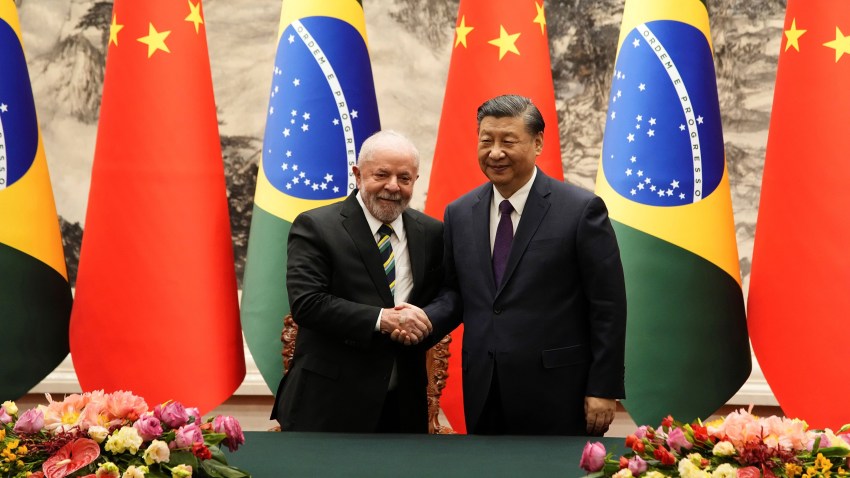Could a coalition of non-Western countries find a pathway to peace between Russia and Ukraine? Brazilian President Luiz Inacio Lula da Silva talked up this prospect on a visit last weekend to Beijing, where he spoke to his Chinese counterpart, Xi Jinping, about creating a “peace group” of states to coordinate an end to the war. Lula was not the first leader to sound out Xi about peacemaking in Ukraine in recent weeks. When French President Emmanuel Macron was in Beijing in early April, he urged the Chinese president to guide Russia “back to reason.”
Xi apparently reacted coolly to Macron’s overtures, but both Western and non-Western statesmen have been scrutinizing China’s intentions since Beijing released a 12-point “position paper” on ending the war in late February. The paper itself was brief and designed to offer something to all sides. It affirmed Ukraine’s territorial integrity but echoed Russia’s narrative that NATO’s enlargement is a threat to Moscow’s core interests. The U.S. and many of Ukraine’s allies dismissed the document, arguing that China is too close to Russia to act as a peacemaker, although Ukrainian President Volodymyr Zelenskyy said that he was willing to discuss it with Xi.
But to date, there has been no Xi-Zelenskyy phone call. Western officials complain that the Brazilians and Chinese have failed to engage Ukraine on their peace proposals, while making direct outreach to Russian President Vladimir Putin. But China’s intervention and Lula’s proposal for a contact group has focused attention on non-Western powers’ potential to help end the war.

